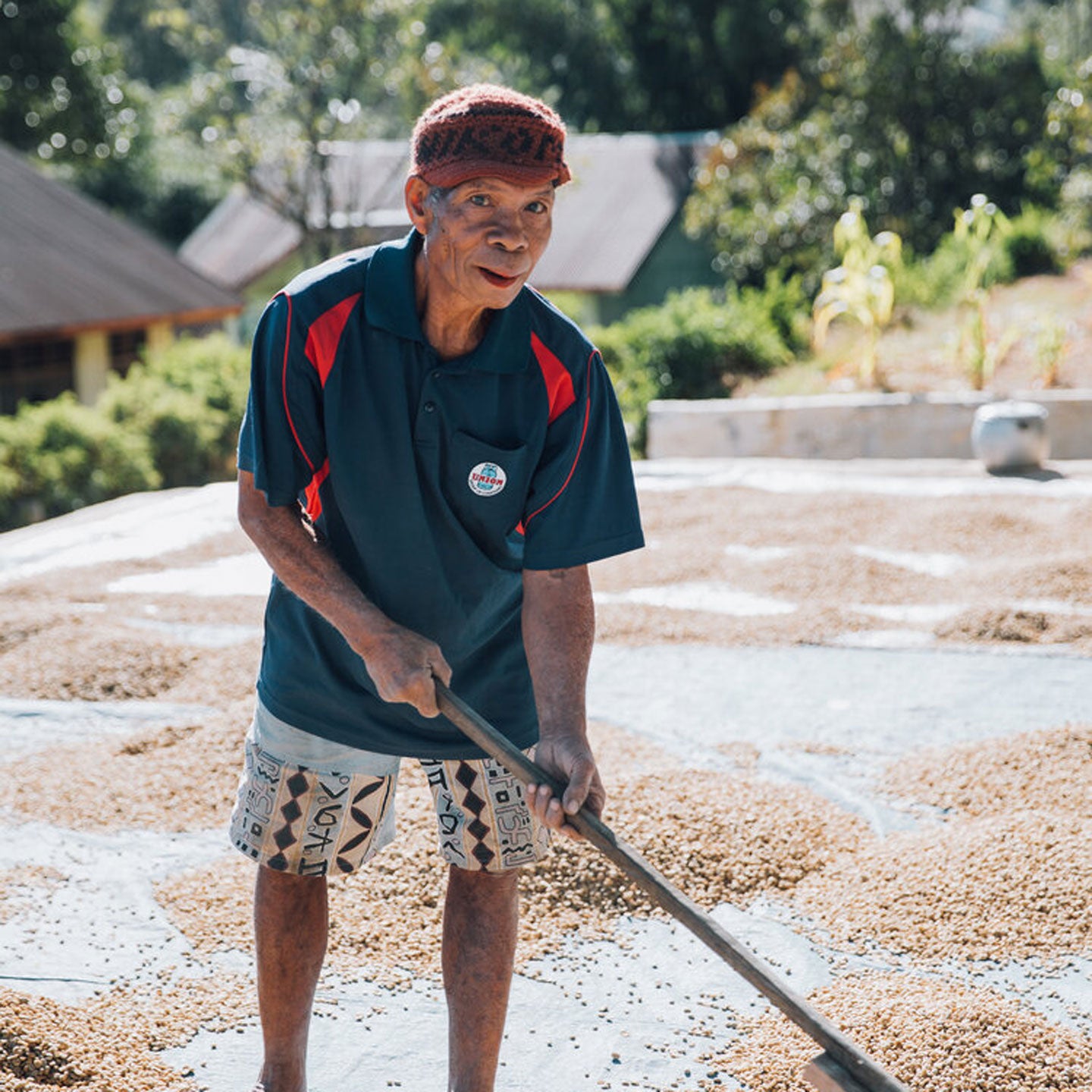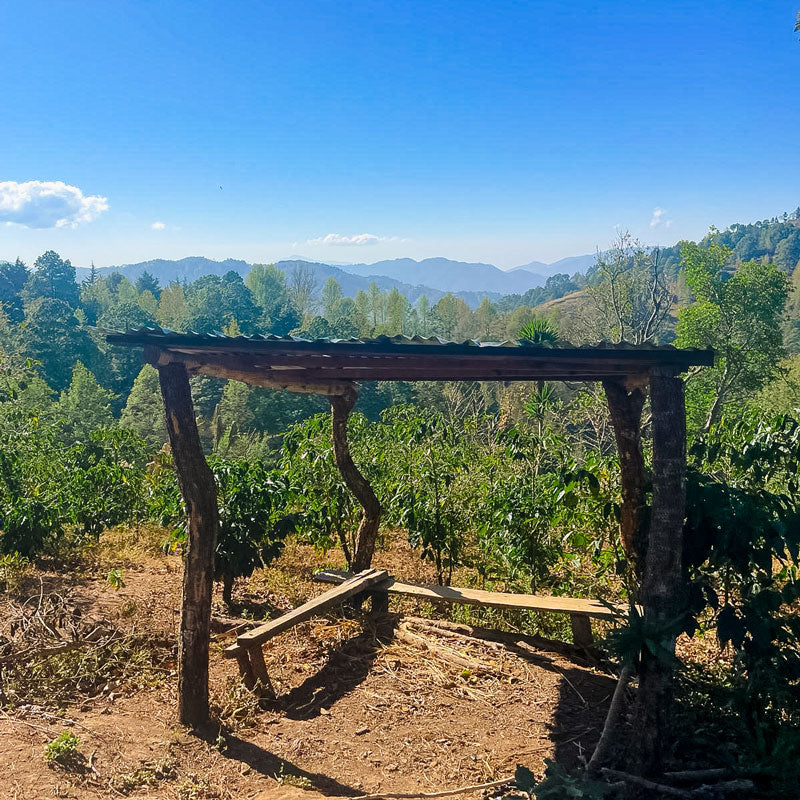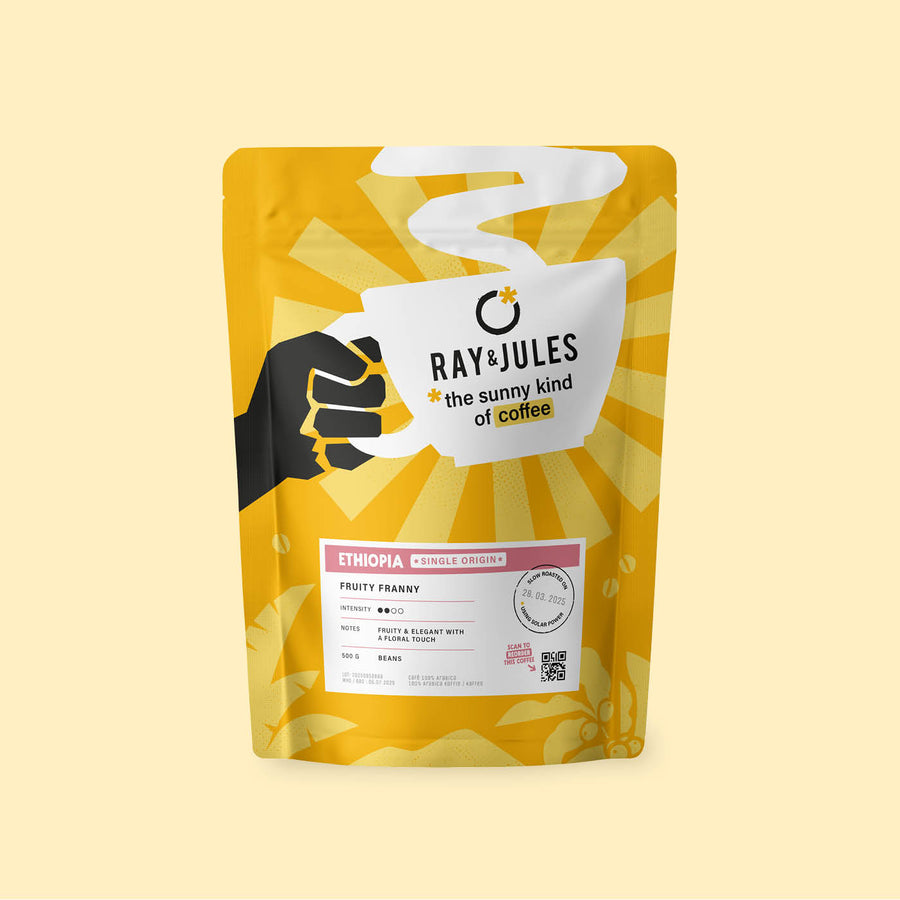An uncertain future
Coffee cultivation requires very specific weather conditions to yield quality and sufficient yield. Those conditions have become more extreme and unpredictable; wet periods get wetter, warm ones get hotter. Coffee plants have a very hard time with that.
At current projections, climate change will halve coffee cultivation by 2050. This is dramatic for coffee farmers and an economic nightmare for “coffee countries. Very often coffee is the main export product there so halving has a direct impact on the economy. Moreover, coffee is often traded in dollars, with that foreign currency they can buy other necessary products.

The average age of the coffee farmer is 65 years; on the coffee plantations, we see an exodus of the younger(er) generations. Often they are encouraged by parents/grandparents to earn more stable money elsewhere than an uncertain future in coffee. Because there are not enough workers during the labor-intensive harvest, coffee farmers have to use seasonal workers from surrounding countries. This, of course, also costs the farmer more money.
Where farmers are really on the ground, they sell their plantations to foreign investors. Or they trade their crops for rubber and fruits that are in high demand from China. The yield for the farmer is then 3x higher than for growing coffee. We see this happening in Vietnam, for example, but as a result their supply of coffee (the largest producer of Robusta) is noticeably decreasing. Also the knowledge, expertise and care for the peculiarities of their coffee 'terroir' are thus lost.
increases and speculation
There are many coffee varieties, but only 2 are exported: 56% of the world's production are Arabica beans and 44% Robusta. Robusta coffee is traditionally the “cheaper” coffee because it is easier to grow for higher yields. But it is precisely this Robusta coffee that has gone from 1800 euros/ton to 4800 euros/ton in 2 years. This increase is also pulling Arabica prices upward.
The causes are always linked to natural or weather conditions (e.g. frost in Brazil), but today, unfortunately, there is much more speculation. Large buyers (traders) create a false sense of scarcity by reporting too much / too little rainfall or crop failures. This creates panic reactions and the stock market price goes up. Profits are then made on this, which remain in the hands of the speculators. And thus do not go to the farmer.

Then there is the so-called EU Deforestation Regulation under which the EU is not allowed to import anything for e.g. coffee that comes from plantations where recent deforestation has taken place. This means that coffee growers must have their production chain meet specific requirements. The certification and documentation involved involves additional costs.
Coffee producers are forced to make their production more sustainable and avoid deforestation, which in itself is positive, but many farmers do not have a buffer to make those extra investments. Farmers who cannot comply with the new rules and/or countries with fewer resources can no longer export their coffee to the EU. So soon there will be an even more limited supply of coffee on the European market ... So we are going to pay more for lesser quality.
Fortunately, there are solutions
There are solutions, and that is what we want to work on with Ray&Jules. Clearly, farmers need to innovate if they want climate-resistant plantations with good coffee and sufficient yields. Thanks to our direct partnerships, we put our shoulders to the specific needs of farmers or cooperatives and think along with them how we can support them. Obviously by buying their coffee at a price that covers their costs and allows them to make the investments they need.
By staying away from those speculations, getting close to the farmers, visiting them and making long-term plans, we are making strides. Our customers, you in other words, are the linchpin in this because without the sale of coffee, even for Ray&Jules, it becomes black before the eyes😉.





